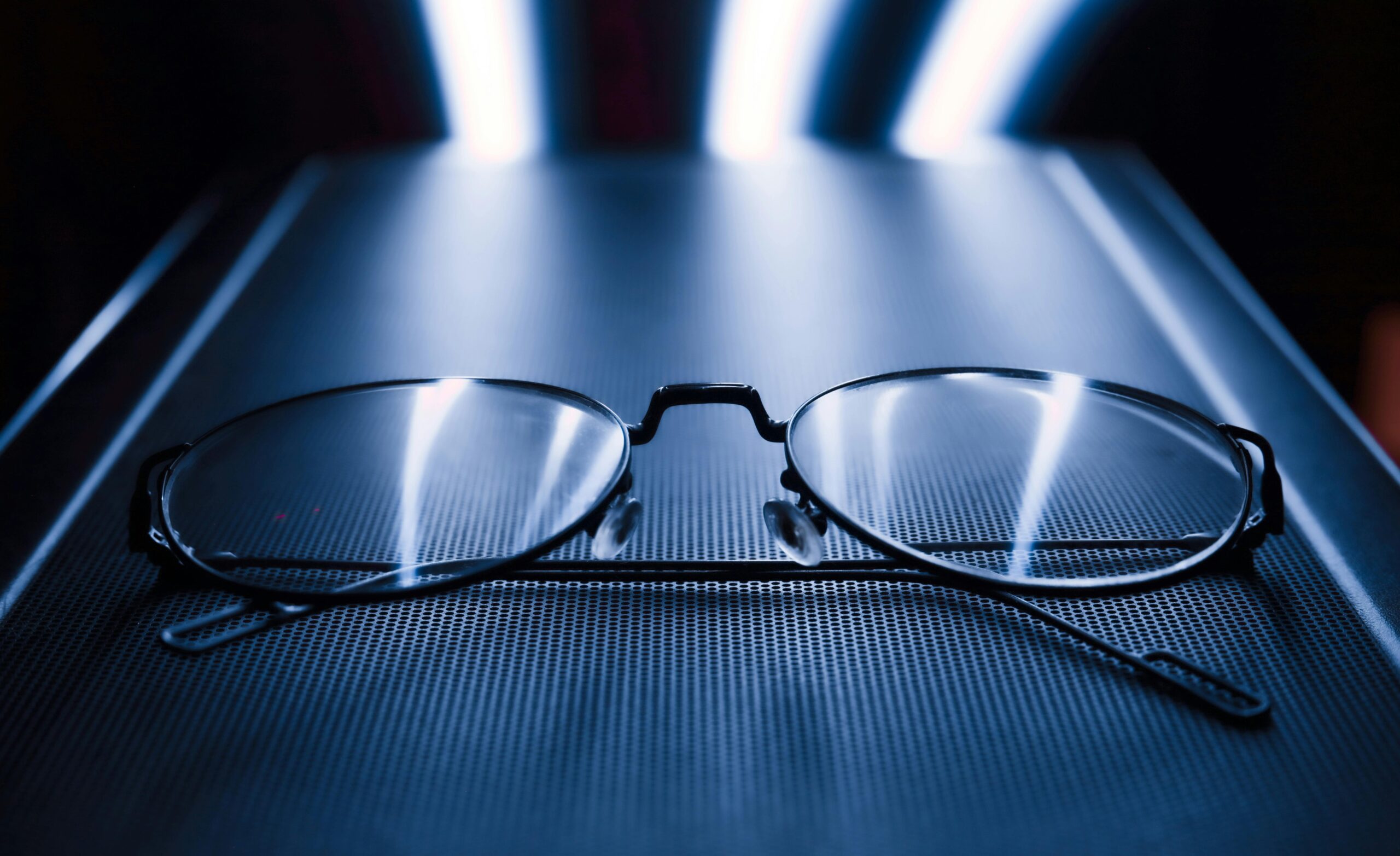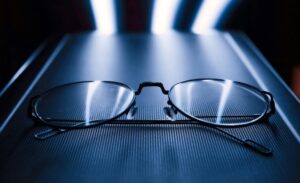Over time, the clarity of your eyeglasses may be compromised by dirt, oil, and smudges, affecting your vision and potentially causing eye strain. To ensure the longevity and effectiveness of your eyewear, it is crucial to use the best cleaner available. Not all cleaners are suitable for eyeglasses, as some may contain harsh chemicals that can damage the lenses or coatings. Choosing a gentle, lens-safe cleaner is necessary to preserve the quality of your glasses. Let’s explore the most effective options to keep your eyeglasses clean and pristine for optimal vision.
Key Takeaways:
- Use a gentle cleaning solution: It is best to clean eyeglasses with a mild soap or eyeglass cleaner specifically designed for cleaning lenses. Avoid harsh chemicals like ammonia or alcohol.
- Microfiber cloths are ideal: When cleaning eyeglasses, use a soft microfiber cloth to avoid scratching the lenses. Avoid using tissues, paper towels, or clothing that may contain abrasive materials.
- Avoid hot water: It is recommended to clean eyeglasses with lukewarm water as hot water can damage the lenses or coatings. Always rinse the glasses thoroughly after cleaning to remove any residue.
Types of Eyeglass Cleaners
The use of proper eyeglass cleaners is imperative to maintaining the longevity and clarity of your lenses. There are various types of cleaners available in the market, each with its unique advantages.
| Liquid Solutions | Pre-Moistened Wipes |
| Effective in removing smudges and dirt | Convenient and travel-friendly |
| Specially formulated for different lens coatings | No need for additional cleaning solution |
| Require a separate microfiber cloth for wiping | Can be used on-the-go |
| Can be more cost-effective in the long run | May not be as effective on stubborn residues |
| Widely available in stores and online | Disposable after single use |
Liquid Solutions
One popular option for cleaning eyeglasses is using liquid solutions. These solutions are specially formulated to effectively remove smudges and dirt from lenses without causing any damage. It is important to use a separate microfiber cloth to wipe the lenses after applying the solution for optimal results.
Pre-Moistened Wipes
To properly clean your eyeglasses, consider using pre-moistened wipes. These wipes are convenient and easy to use, making them ideal for quick cleaning on the go. However, it is imperative to note that while they are great for regular cleaning, they may not be as effective on stubborn residues that require more thorough cleaning.
Factors to Consider When Choosing Eyeglass Cleaners
Even though eyeglasses may seem small, they play a crucial role in our daily lives. To ensure they last long and provide clear vision, it’s important to properly care for them with the right cleaner. When deciding on an eyeglass cleaner, here are some factors to consider:
- Lens Material and Coating Compatibility
- Effectiveness Against Various Contaminants
Lens Material and Coating Compatibility
Consider the material of your lenses and any coatings that may be applied to them. Some cleaners may be too harsh and can damage certain lens materials or coatings. Look for a cleaner that is safe for your specific type of lenses to avoid any potential damage.
Effectiveness Against Various Contaminants
On your quest for the best eyeglass cleaner, it’s important to assess its effectiveness against various contaminants. Eyeglasses can accumulate dirt, oils, and other residues that can affect your vision. Look for a cleaner that is specially formulated to remove these contaminants without leaving streaks or residue behind.
Any compromises in the cleaning process can affect your vision and the longevity of your eyeglasses. Choose a cleaner that is gentle on your lenses yet powerful enough to remove all contaminants effectively.
DIY vs. Commercial Cleaners
Homemade Solutions Recipes
All eyeglass wearers want to keep their glasses clean and free of streaks and smudges. With simple household items like mild soap and water or vinegar and water solution, you can create your DIY cleaner. These homemade solutions are cost-effective and gentle on the lenses.
Advantages of Commercially Available Cleaners
For those who prefer convenience or have sensitive lens coatings, commercially available eyeglass cleaners can be a great option. They are specially formulated to prevent damage to lenses while effectively removing dirt and oils. Commercial cleaners often come in convenient spray bottles, making them easy to use on the go.
A key advantage of commercially available cleaners is their effectiveness in completely removing stubborn dirt and oil from the lenses. This is especially important for those who wear their glasses daily and need a reliable solution to keep their lenses crystal clear.
Tips for Maintaining Clean Eyeglasses
Many eyeglass wearers struggle to keep their eyeglasses clean and free of smudges. To ensure your vision remains clear and your frames stay in top condition, it is important to follow proper maintenance practices. Here are some valuable tips to help you maintain clean and clear eyeglasses:
Routine Cleaning Practices
On a daily basis, it is recommended to clean your eyeglasses with a gentle solution and a microfiber cloth. Avoid using harsh chemicals or paper towels, as these can scratch the lenses and damage the coatings. Simply rinse your eyeglasses under lukewarm water, apply a small drop of mild dish soap to each lens, gently lather with your fingertips, and rinse thoroughly. Finally, dry your eyeglasses with a clean microfiber cloth to prevent water spots.
Best Practices for Storing Eyeglasses
With proper storage, you can prevent your eyeglasses from getting scratched or damaged. When not in use, always store your eyeglasses in a protective case to shield them from dust, debris, and accidental impact. Avoid placing your eyeglasses lens-down on hard surfaces, as this can cause scratches. Additionally, keep your eyeglasses away from extreme heat or cold, as high temperatures can damage the frames and lenses.
Cleaning your eyeglasses regularly and following these best practices for storage can help prolong the life of your eyewear and ensure optimal vision. Recognizing the importance of proper maintenance will keep your eyeglasses in excellent condition for years to come.
Conclusion
Presently, the best cleaner for eyeglasses is a mild soap and water solution. This method effectively removes dirt and oils without damaging the lenses or coating. Avoid using harsh chemicals or abrasive materials that can scratch or strip the lenses. Remember to dry your eyeglasses with a soft, clean cloth to prevent water spots. Regularly cleaning your eyeglasses with a gentle cleaner will help maintain their clarity and extend their lifespan.
FAQ
Q: What is the best cleaner for eyeglasses?
A: The best cleaner for eyeglasses is a solution specifically designed for cleaning lenses, such as an alcohol-based lens cleaner or a mild dish soap with lukewarm water.
Q: How often should I clean my eyeglasses?
A: It is recommended to clean your eyeglasses daily to remove oils, dirt, and debris that can accumulate on the lenses, affecting your vision and comfort.
Q: Can I use household cleaners to clean my eyeglasses?
A: No, using household cleaners like ammonia, vinegar, or window cleaners can damage the lenses and coatings on your eyeglasses. Stick to specially formulated lens cleaners to ensure safe cleaning.
Q: What is the proper way to clean eyeglasses?
A: The proper way to clean eyeglasses is to rinse them under lukewarm water to remove debris, apply a small drop of lens cleaner or mild dish soap, gently rub the lenses with your fingers, and rinse again. Finally, dry them with a clean, microfiber cloth.
Q: Are there any cleaning methods to avoid for eyeglasses?
A: Yes, avoid using rough materials like paper towels, tissues, or your clothing to clean your eyeglasses, as they can scratch the lenses. Also, avoid using hot water or saliva to clean your lenses as they can damage lens coatings.






